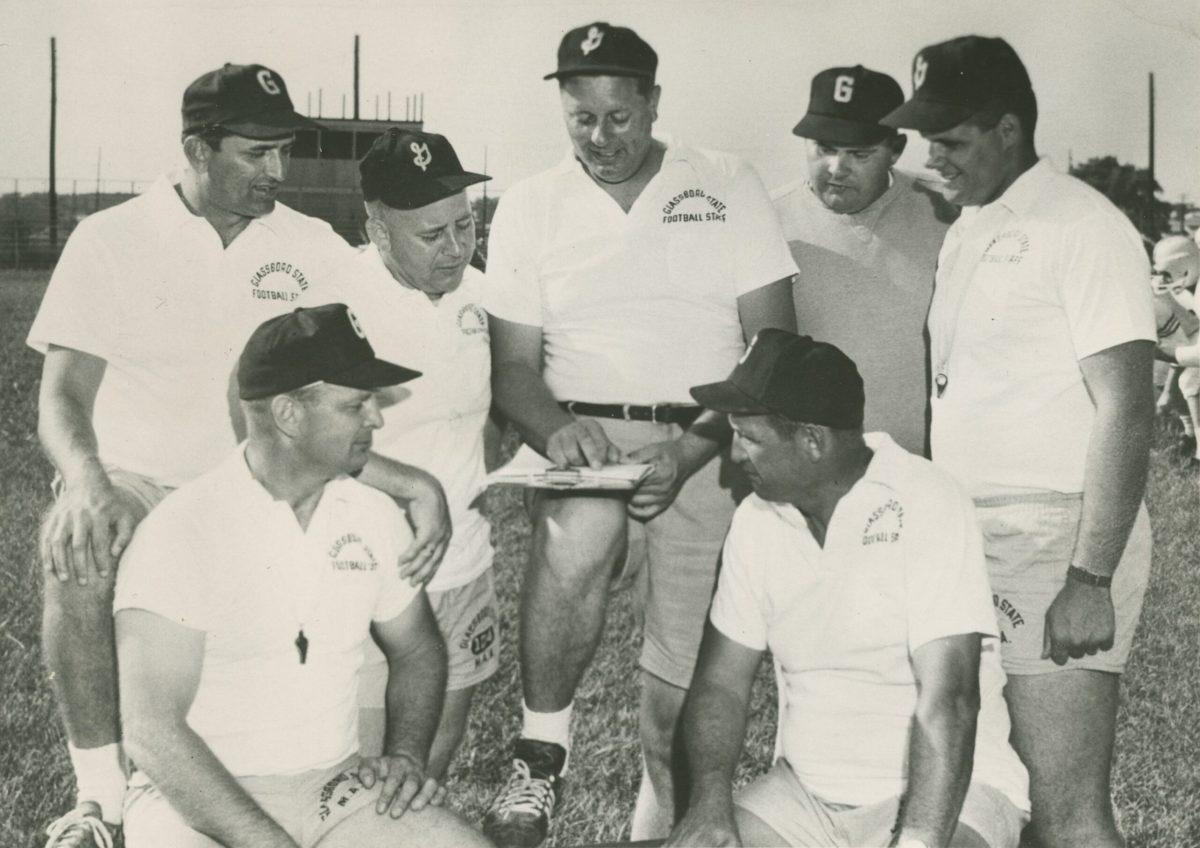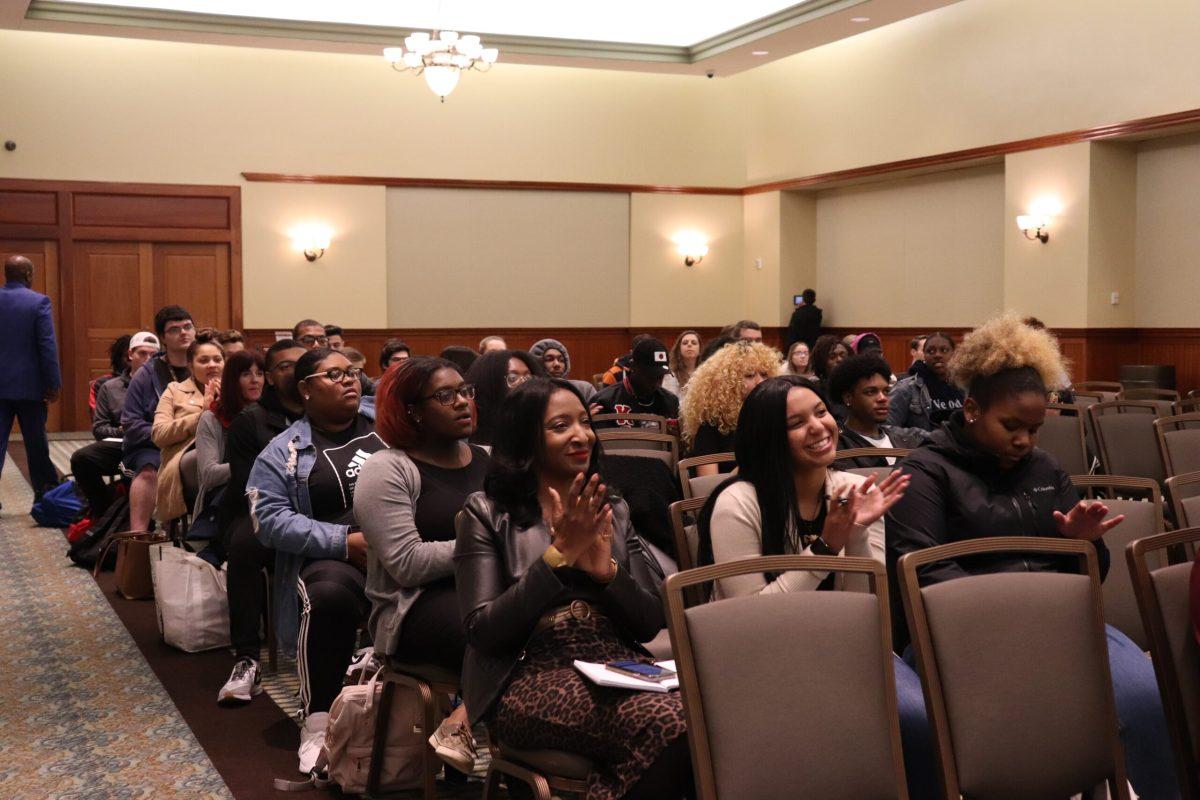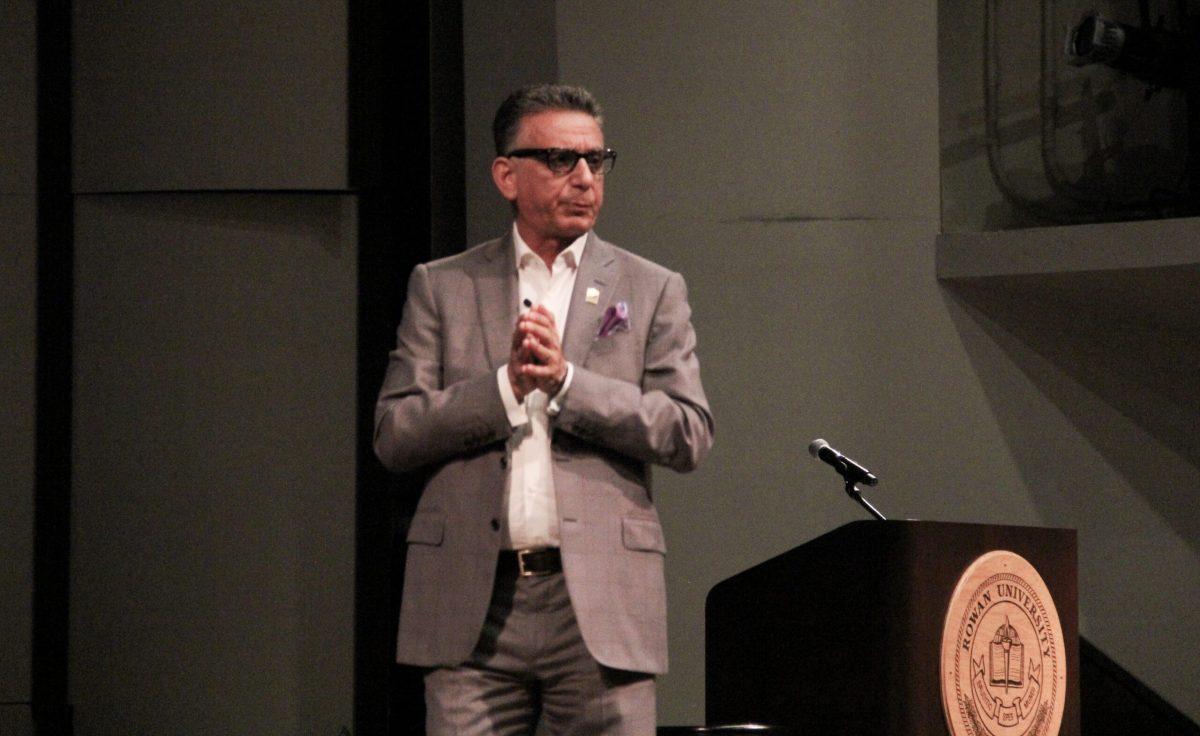Coach Richard Wackar has had his name immortalized on Rowan University’s football stadium since 2009, but a drive down Carpenter Street cannot tell the whole story about the man known simply as “Coach.” Ask anyone that has been close to the Rowan football program and they will tell you their own story about something that Wackar has done for them.
Whether he was calling and sending handwritten letters to his former players after their parents passed away, or calling current Rowan football coach Jay Accorsi to remind him about how the elements affect a game, Wackar was more than just a football coach. He was a Glassboro State College and Rowan University icon.
Rowan lost this icon when Wackar passed away at age 88 this past August.
“I think he was the coach with the highest integrity,” Rowan Athletic Director Dan Gilmore said. “I have never heard anyone say anything bad about him.”
When he walked the sidewalks at the then-smaller Glassboro State, Wackar spent his time coaching four of the college’s athletic teams – basketball, cross country, football and golf.
As the head football coach, Wackar guided the Profs to five conference titles and one Eastern Conference championship. Wackar started and coached the men’s cross country team from 1957-62. Like in the other sports, he found success taking the brown and gold to two conference championships, two district titles and one appearance in the national cross country championship.
For 25 years, Wackar was the gold coach for Glassboro State. With this team, he gathered more than 200 wins and led the Profs to seven New Jersey Athletic Conference championships. He was also the men’s basketball coach for seven seasons and led his teams to three state championships and finished second three times. He led the Profs to a 100-53 record.
His dedication to the teams made him the only coach in the NJAC to win a championship in four sports.
“He was teaching classes and doing other stuff and only got six credits to coach football which is unheard of in this day and age,” Gilmore said. “He was a father figure, he was a leader, he was a go-getter. All the great things that you can say about a person, he had those traits.”
Gilmore added that Wackar would even take the responsibility to water the grass, take care of the field and plant trees around the stadium.
That dedication continued even after his time at Rowan was finished.
As Accorsi pointed out, up until last year, Wackar made the short trip from his Pitman, New Jersey, home to attend every one of the Profs’ home games. Accorsi also said that until about five years ago, Wackar would be on the sidelines of the away games as well.
“It would be impossible for me to explain how much he has meant to the program and how much he has meant to other people,” Accorsi said. “I’m sure whoever you ask that’s been around the program will tell you the same thing, especially his players.”
Rick Giancola is one of those former players. He is also one of 13 former football players coached by Wackar in the Glassboro State/Rowan University Athletics Hall of Fame. Giancola has also been on the opposite sideline as Wackar, serving as an assistant and then head coach for Montclair State University since 1975.
“It was strange going down to Glassboro and seeing him on the other side of the field knowing that I played for him,” Giancola said. “It was uncomfortable because I had so much respect for the man. He gave me an opportunity to go to school, to play and to graduate. He was always available.”
Giancola lauded Wackar’s mental toughness and patience, among many other things. He focused on how a lack of players during the Korean War led to the football program being discontinued in 1950 until 1963. Wackar brought back the program and gradually improved it until it became a consistent winner.
“We were a first-year program when I was a freshman but I never heard him say negative things,” Giancola said. “He was always positive and worked hard. We failed sometimes but he never stopped. It was at the time something I didn’t understand, but I certainly understood when I started coaching.”
Besides being a legend on the sidelines, Wackar was also known for being a key cog in health education at Glassboro State. He helped establish the health and physical education undergraduate major and graduate program, and helped in the development of several athletic facilities at the then-college.
Gilmore said that Wackar acted as a “sounding board for many of his colleagues, even the ones not in athletics.” He continued to say that some of Wackar’s closest friends were in the music and history department and that he maintained those relationships even as the campus grew.
According to Accorsi, the team is trying to get decals for their helmets that read “COACH,” even though he believes that Wackar would not want them to do that. There will also be a memorial service from 10:30 to 11:30 a.m. on Oct. 22 at Richard Wackar Stadium.
“He wouldn’t want anything at all. That’s just the way he was. He’d be upset knowing that we had a memorial service,” Accorsi said. “We’re doing the decals so we can remember him this year and then we can take them off because I believe that’s how he’d want it. Nothing permanent, no recognition. Just a simple man and a simple way to do things. That’s not common anymore.”
For comments/questions about this story, email [email protected] or tweet @TheWhitOnline.























































































































































!["Working with [Dr. Lynch] is always a learning experience for me. She is a treasure,” said Thomas. - Staff Writer / Kacie Scibilia](https://thewhitonline.com/wp-content/uploads/2025/04/choir-1-1200x694.jpg)

















































